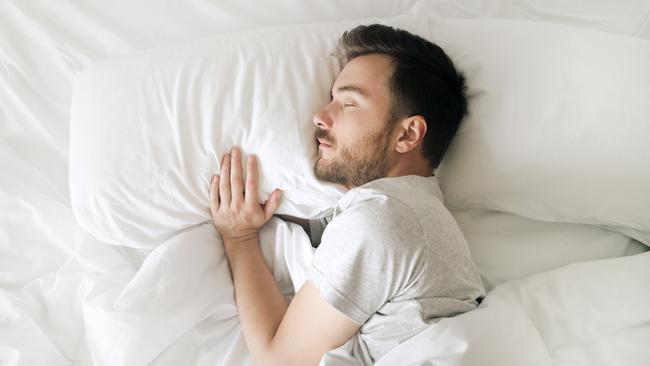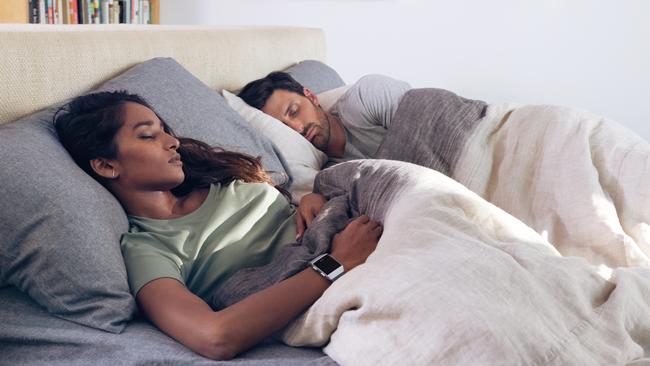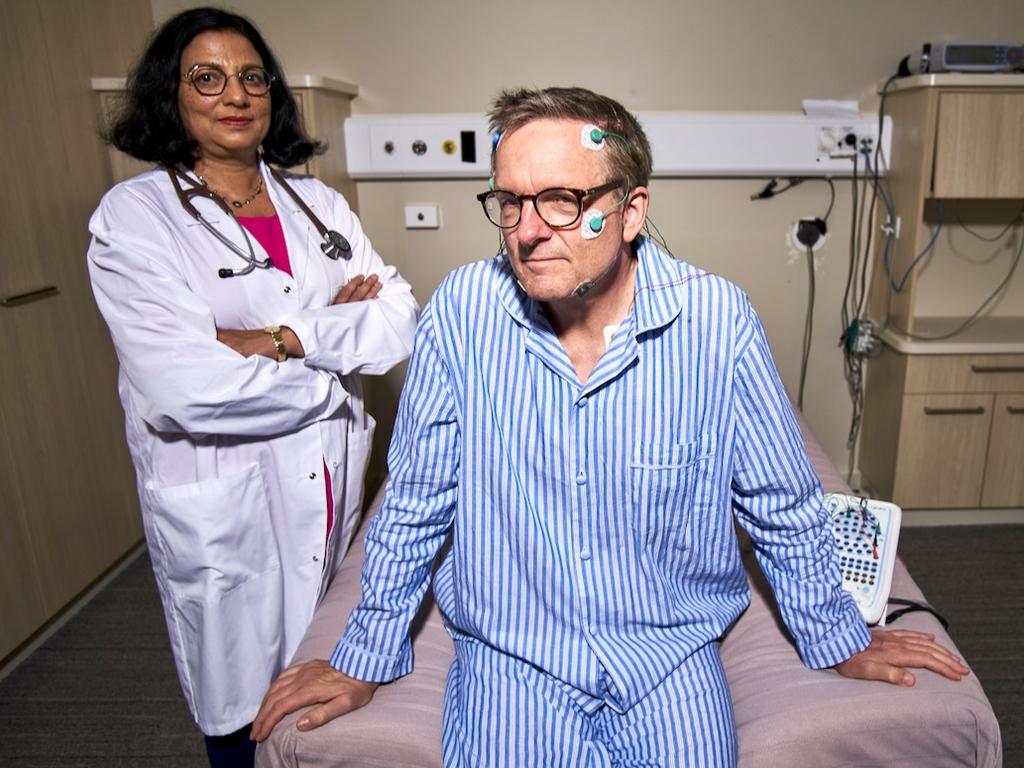Awake at 2 AM? Here’s how to get back to dreamland
Whether it’s a digital detox or the perfect sleep environment, there are a number of ways to try and achieve a better sleep. We asked two experts to share tips they swear by.

Do you ever find yourself wide awake in the dead of night, staring at the ceiling, your mind buzzing with thoughts? Perhaps you’re reliving moments of the day or mentally drafting an email that you’ll forget about by the morning. Sometimes it’s the flux of embarrassing memories from the past coming back to haunt you. And for parents, the relentless cycle of night-time rituals can keep their minds racing long after they’ve gone to bed.
While an overactive mind or tossing and turning at night can hint at deeper issues, a bad night’s sleep is far more common than you’d think. According to the 2024 Global Sleep Survey from ResMed — which surveyed 36,000 participants across 17 markets — 58 per cent of Australians are unable to get a decent night of sleep. Yet, despite the prevalence of sleeplessness, the path to a peaceful slumber can be unclear.
There’s no secret that getting quality shut-eye is crucial for our mental and physical health. “In deep sleep, we produce the majority of our human growth hormones, which catalyse cellular repair from our daily wear and tear,” explains sleep expert Olivia Arezzolo. As for our emotional health, inadequate sleep promotes high levels of cortisol, our stress hormone, “which can leave us feeling anxious, wired and unable to switch off.” But how do you break free from a vicious cycle of bad sleep?
There are several strategies to try for getting a better night’s sleep. However, the difficulty is in figuring out what works for you. From avoiding digital devices at least an hour before going to bed to creating the ultimate sleep sanctuary, there are more than a few ways to improve your sleep quality. Rest assured, we asked two sleep experts to tell us the strategies they recommend.

Conquer night-time anxiety
As reported in ResMed’s Global Sleep Survey, 45 per cent of Australians noted that the primary reasons they were kept awake at night was because of anxiety. When we’re stressed our bodies produce more cortisol, making it even more difficult to switch off and sleep soundly. “Listening to a guided meditation is my top recommendation,” says Arezzolo. “It synchronises brainwaves into a slower rhythmical pattern, helping us fall asleep faster and sleep deeper,” she continues. She also recommends reading as another way to relax and distract our minds from racing thoughts throughout the night.
Try a digital detox
It’s almost impossible to escape technology in our daily lives. But too much screen time can have negative effects when it comes to your sleep. According to sleep expert and co-founder of The Goodnight Co, Shea Morrison, the blue light emitted from our screens can interfere with our body’s natural production of melatonin, the hormone that regulates sleep-wake cycles. “The disruption to melatonin production can lead to difficulty falling asleep and may result in a less restful night,” explains Morrison. If you’re guilty of a digital dependence, Morrison suggests keeping electronic devices out of the bedroom all together to “create an environment conducive to relaxation.” Another strategy is setting yourself a screen-time curfew — yes, a curfew for adults — at least an hour before bedtime.

Create a sleep sanctuary
To transform your bedroom into a sleep haven where you can’t help but feel relaxed, Morrison suggests starting with the right mattress and pillow. “A high-quality mattress not only supports your physical body but also encourages an environment conducive to quality sleep,” he says. But how do you choose the perfect mattress? Well, unfortunately for online shoppers, testing a mattress in-store before purchasing seems to be the answer. In Sealy’s most recent Posturepedic Sleep Census, 85 per cent of participants who invested in a mattress they bought in-store were reported to be satisfied with their purchase and felt more productive throughout the day.
Avoid evening exercise
From regulating your sleep-wake cycle to promoting longer sleep duration and reducing insomnia, regular exercise has enormous benefits when it comes to your overall sleep quality. But timing of your workout can have a major impact. Exercising too late can leave you with a stimulating effect that inhibits your body’s ability to wind down. Morrison recommends leaving at least a few hours between completing a high intensity workout and going to bed.
Regulate your circadian rhythm
The circadian rhythm is your body’s internal clock and it’s crucial when it comes to regulating your sleep cycle. When your rhythm is regulated, you should feel wakefulness during the day and sleepiness at night. However, external factors like exposure to artificial light in the evening, can send the wrong message to your body, leaving you feeling wide awake when you should be winding down. Maintaining a regular sleep schedule can help to reinforce the body’s internal clock. “Waking at the same time every day, getting a hit of sunlight, exercising outdoors, opening curtains or blinds, or incorporating blue light therapy can enhance wakefulness cues,” says Morrison. Along with limiting screen time in the evening, he also suggests incorporating mindful eating patterns by “avoiding heavy meals close to bedtime to contribute to better digestion and support the body’s natural sleep cues.”
The 2 AM wake up
You’ve woken up in the middle of the night and you can’t get back to sleep, now what? According to Arezzolo, if you haven’t been able to fall back asleep within 20 minutes, get up and go into another room. “Only return to bed when you are just about to fall asleep,” she says. Morrison recommends reading a book or trying breathing exercises to help ease the transition back to sleep.




To join the conversation, please log in. Don't have an account? Register
Join the conversation, you are commenting as Logout